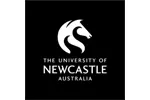

Australia . Cricos: 00109J
University of Newcastle, Australia| The award | How you will study | Study duration | Course start | Domestic course fees | International course fees |
|---|---|---|---|---|---|
| GradCert | Full-time | 6 months | January | 0 | AUD 17830 per year |
This program is delivered through CIFAL Newcastle, a United Nations training centre with a focus on disaster resilience and sustainable development, which is hosted at the University of Newcastle. The United Nations has partnered with the University to develop the Graduate Certificate in Disaster Risk Reduction. The program provides graduates with the knowledge to manage the Disaster Risk Reduction (DRR) process across all sectors of society.
Students of the program engage fundamental disaster risk concepts, and receive training in the use of the most globally adopted DRR tools and protocols, some of these through direct engagement with UNITAR and UNDRR resources. UNDRR is the UN agency with responsibility to foster the change needed to meet the recommendations of the Sendai framework. Graduates will be capable of conducting disaster risk evaluations, and guiding the subsequent development of disaster risk mitigation and management strategies for the organisation in which they work.
If you work in a role that relates to risk assessment and management and business continuity, or if you are considering this as a career path, then the Graduate Certificate in Disaster Risk Reduction is relevant to you. All industries are impacted by disasters and must implement strategies to manage risk, speed up recovery and improve resilience. Even if you are experienced in this field, this program can increase your professional capacity in relation to the latest Disaster Risk Reduction (DRR) practices.
Associate Degree, Advanced Diploma, Bachelor Degree, Graduate Diploma or Graduate Certificate.
Note: Organisations of all types within civil society have the potential to be negatively impacted by disasters. The appropriateness of this program to potential students is therefore in large part determined by their role within those organisations (i.e. the extent to which they are, or are intended to become, responsible for its disaster risk reduction activities) rather than the nature or level of their prior qualifications (which will be assumed to be vocationally relevant to the organisation for which they work, and therefore be used to determine their educational eligibility for admission).
All Applicants must demonstrate that they meet the University's English proficiency requirement. Further information regarding English language proficiency requirements can be found at the English Language Proficiency for Admission Policy here.
Below are some suggested courses at other providers that you may also be interested in:
Bachelor of Business Administration BBA
University of Applied Sciences Europe - Amsterdam
Find out moreCultural Heritage Conservation Science MSc
Dipartimento di Scienze della Terra, University of Milan
Find out moreIf you do not meet the entry requirements for this course then consider one of these postgraduate preparation courses from another institution:
Graduate Diploma of Engineering (Electrical Systems)
Engineering Institute of Technology
Find out moreGlobal Master of Engineering in Logistics and Supply Chain Management (GSCM)
Zaragoza Logistics Center (ZLC)
Find out moreThere are 187 other courses listed from University of Newcastle, Australia. A selection of these are displayed below:
Bachelor of Aboriginal Studies (Honours) Bachelor Degree
University of Newcastle, Australia
Find out moreBachelor of Arts / Bachelor of Innovation and Entrepreneurship Bachelor Degree
University of Newcastle, Australia
Find out moreBachelor of Arts / Bachelor of Laws (Honours) Bachelor Degree
University of Newcastle, Australia
Find out moreBachelor of Biomedicine/Bachelor of Laws (Honours) Bachelor Degree
University of Newcastle, Australia
Find out moreFind out more about studying in Australia